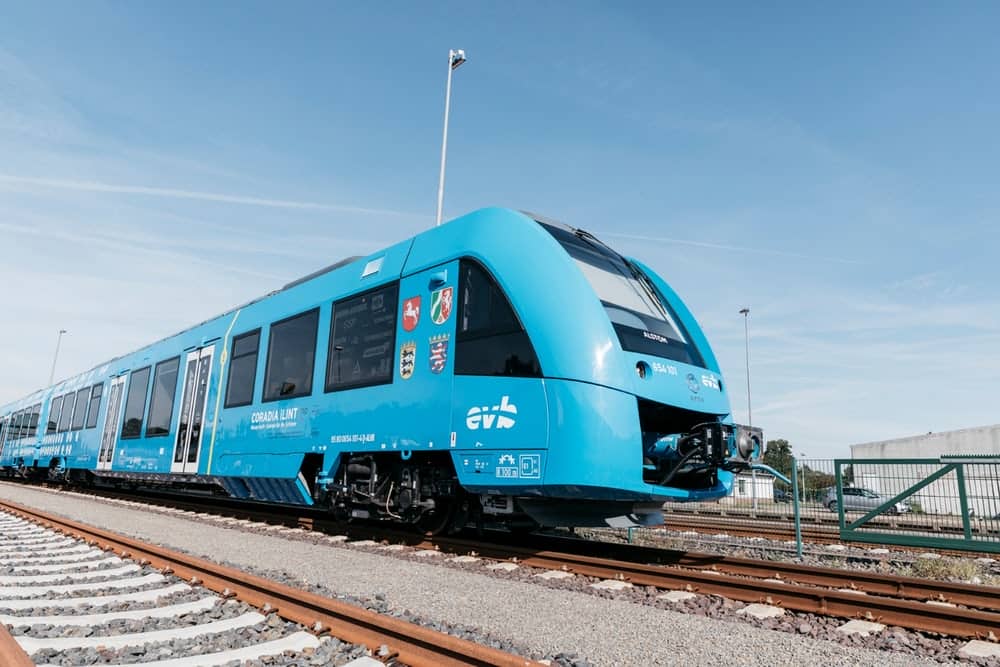The world’s first hydrogen fuel cell-powered train has entered regular service recently in Germany. The two-car Alstom Coradia iLint was launched on Eisenbahnen und Verkenrsbetriebe Elbe-Weser’s (EVB) Elbe-Weser network in Lower Saxony. The train was unveiled before the government and industry dignitaries on Sunday at Bremervorde. The new Coradia iLint will be the first of the two trains which are in a growing network of zero-emission trains that operate on Germany’s railways. The electric trains are very useful on crowded railway lines and offer emission-free services at the point of use. It is not practical to electrify every line except in the smallest or most busy networks. This results in many long-hauls or underused rural lines which rely on diesel to carry passengers and goods.


Alstom built the first two Coradia iLint in Salzgitter, Germany as a part of the US$ 94.5 million contracts to create an initial fleet of 16 hydrogen-powered trains. The Coradia iLint is based on Alstom’s diesel-powered Coradia Lint 54 and is powered by hydrogen fuel cells which are backed up by lithium-ion batteries which can store excess electrical energy. It can carry up to 300 passengers with 150 seats and can run at a speed of 140 km/h. The acceleration and braking performance of the Coradia iLint is comparable to the Lint 54.


The hydrogen-powered trains are run on behalf of the German regional rail authority Landesnahverkehrsgesellschaft Niedersachsen (LNVG) on more than 100 km long track between Cuxhaven, Bremerhaven, Bremervorde, and Buxtehude while replacing the traditional diesel trains. Coradia iLints will be fueled by a mobile hydrogen filling station in between the runs. The filling station consists of a 40ft tall, steel hydrogen gas container which will be parked by the tracks at Bremervorde station.


Each fill will run the train for 1000km. According to Alstom, the portable container will be replaced by a permanent filling station in 2021 when the balance of the fleet is scheduled to enter the service. LLNVG chief Carmen Schwabl said, “With the two Coradia iLint trains and with the use of another 14 hydrogen trains from the end of 2021, we are the first passenger rail transport authority to replace existing diesel vehicles by emission-free vehicles, thus contributing better to the fulfillment of the climate protection goals. We also do this because about 120 diesel train sets in our vehicle pool will reach the end of their lifetime within the next 30 years, meaning we will have to replace them. The experience gained with this project helps us find a sustainable and practical solution.”




